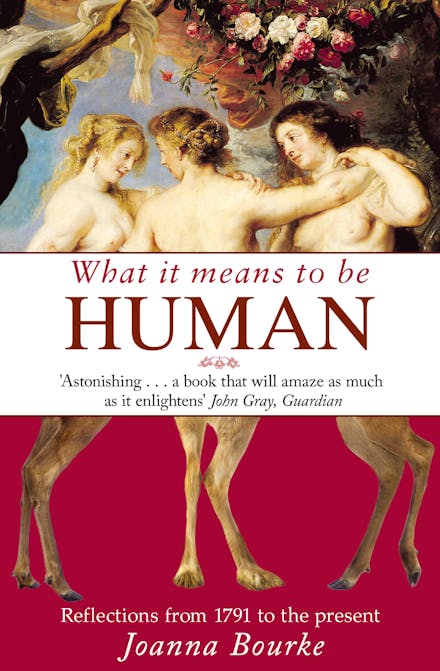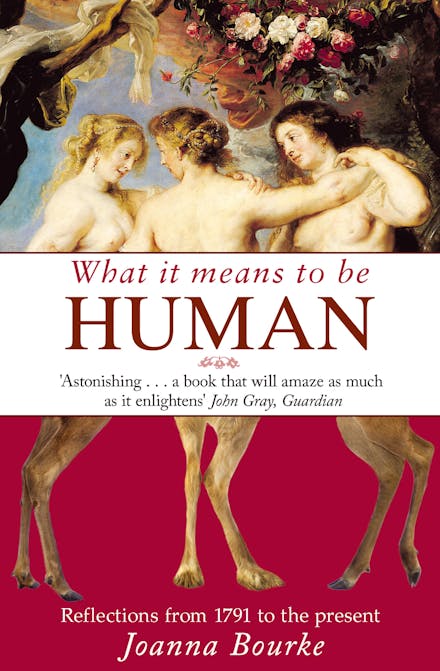Imprint
- Virago
- Virago
Prose: non-fiction, History, Social & cultural history
Fiercely intelligent and always provocative, Joanna Bourke turns to the subject of the human animal.
In 1872, a woman known only as 'An Ernest Englishwoman' published an open letter entitled 'Are women animals?', in which she protested the fact that women were not treated as fully human. In reality, their status was worse than that of animals: regulations prohibiting cruelty against dogs, horses and cattle were significantly more punitive than laws against cruelty to women.
What does it mean to be 'human' rather than 'animal'? If the Ernest Englishwoman had turned her gaze to the previous century, her critique could equally have applied to slaves. In her time and beyond, the debate around human status involved questions of language, facial physiology, and vegetarianism. If she had been capable of looking 100 years into the future, she might have wondered about chimeras, created by transplanting animal fluids and organs into human bodies, or the ethics of stem cell research.
In this meticulously researched, wide-ranging and illuminating book, Joanna Bourke explores the legacy of more than two centuries, and looks forward to what the future might hold for humans and animals.
Praise for What It Means To Be Human: Reflections from 1791 to the present
-
Bourke's critique of the concept of human rights opens an important debate on a complacent ideal - Observer - Philip Ball
-
Provocative, exhilarating . . . Bourke's intelligence is sharp, her language lively, and the cultural images striking - The Times - Iain Finlayson
-
What it Means to be Human ingeniously subverts assumptions of a clear-cut notion of ''humanity''. Bourke successfully undermines any complacency about absolute distinctions . . . Bourke deserves congratulations for bravely going where many historians would fear to tread. She also deserves many readers prepared to engage critically with the important issues raised by her quest to deconstruct ''being human'' - Times Higher Education Supplement - Sheila Rowbotham






























.png?auto=compress&w=150&h=60&fit=crop&fm=jpg)


.png?auto=compress&w=150&h=60&fit=crop&fm=jpg)

